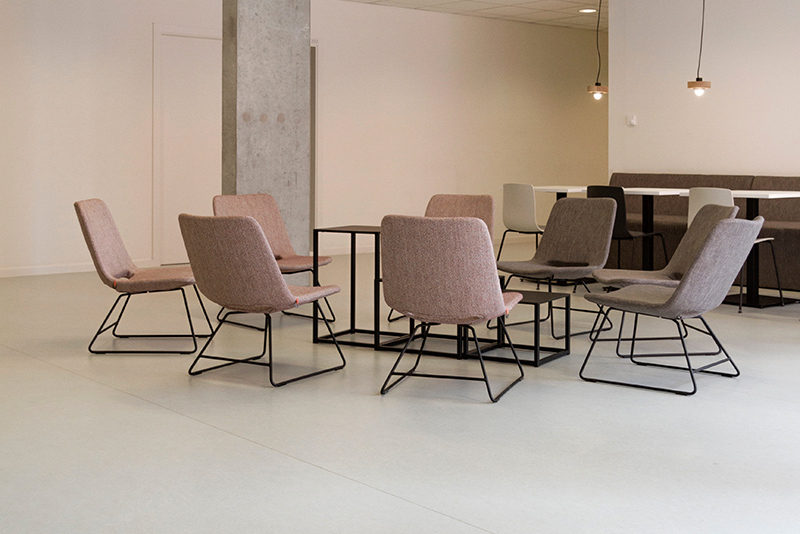The Heaventree Press (2002-2006(ish))

Some time in the first half of 2002, Warwick Arts Centre hosted a panel discussion about a ‘crisis in poetry publishing’. I remember Neil Astley, Matthew Hollis and maybe even Michael Schmidt talking about a wave closing poetry lists and doors at major publishers, a direct result of the Net Book Agreement in 1995 and the rise of Amazon.
Faber had been hit by the end of the West End theatre run of Cats, which, in case you didn’t know, was roughly 50% of Faber’s funding at the time, given the copyright traces back to TS Eliot’s Old Possum’s Book of Practical Cats. Their logical downsizing and caution around poetry made sense. Other lists were terminating, with little notice or rationale beyond profit: Paladin Poetry, the Oxford Poetry Series (which Carcanet picked up, cherry-picking from living authors), and so on. Most major houses quietly froze publication of living poets (including Faber); I recall a comment circa the time about Linton Kwesi Johnson being the only living poet published by Penguin Modern Classics.
The discussion and lively Q&A led to the audience beiung enthusiastically encouraged to start our own presses in the way Neil Astley had done – with no experience, one night in the pub, leading to him sleeping on a mattress on top of boxes of books. Fellow graduates and students, like myself, spilled out into the arts centre, energised. One group went upstairs, the other downstairs. Upstairs got drunk. Downstairs got drunk and made a pact to start a new publishing house.
I think our first name idea was the ‘push-me pull-you press’. I vaguely recall ‘farmers and turners’ being mooted at one point. Earthy, salty names, not particularly catchy. Jonathan Morley, our glorious leader in all things back then, was the one who came up with Heaventree. I don’t think he was reading Finnegan’s Wake at the time, but it made sense. Neo-modernism was still hot those days.
We started with a magazine, avocado, funded by a Prince’s Trust start up grant. We went in asking for £1600 to cover production costs for the first three issues. They offered us about half that when Jon lost his shit in the panel meeting, banging his hand on the table and shouting at them, “Do not underestimate the power of the spoken word!” His energy carried us through the first couple of years, with support from local council funding, a supportive and experienced editorial board, and a Millennium development grant to run a project with refugees fleeing the war in Iraq.
We managed to triple our first Arts Council Grant, of circa £14k, using it as seed and match money to put our fingers in other pies. We hardly saw a penny of it ourselves. I was scribing for disabled students, teaching part time and running any freelance editorial projects I could get my hands on. Jon was a carer for disabled students at first, living in halls with them, working shifts. After I finished my Masters and my grant money was gone, I slept in the office for a few months, which was a spare room in Jon’s place.
The real success, however, was finding some fantastic poets and running some amazing events. Early pamphlets included work by Zoe Brigley, Simon Turner and Michael McKimm. Later, I edited Kei Miller’s first book, Kingdom of Empty Bellies (which he doesn’t talk about, though I did find a box of around 20 copies in my attic a few years ago and if he wants them, or wants to charity-auction them off, happy to, if he reads this). We later published pamphlets by Andy Brown, Mario Petrucci, Zata Banks and an extract from a novel by David Dabydeen.
As to events, apart from our regular open mic, Night Blue Fruit, the highlight was hosting Derek Walcott at Coventry’s West Indian Club on Spon Street. When Jon secured the date, he called up the WIC’s owner, raving about how he’d managed to get the Nobel Prize winner to come and read. “Oh, Nobel Peace Prize, eh?” was the reply. Poor Derek had just come from Paris to pick up a prize, which a French organisation had awarded him in cash, in a duffel bag. He was mugged, losing his green card and passport in the process. He almost cancelled, but David Dabydeen, who had helped secure the event and chaired the conversation, made promises I thought best not to ask details about.
Heaventree was low budget, choppy. My typesetting on Kei’s book was awful. The ink ran on Mario Petrucci’s pamphlet cover, which led to some wacky, high-inducing experiments with a can of ‘frog juice’ in someone’s back garden. We attempted to bring pamphlet production in-house, with an expensive inkjet than never seemed to work and found ourselves wrestling regularly with heavy weights to flatten out the folds in badly saddle-stitched products from local print shops.
The gung ho attitude bore its nightblue fruit eventually, just as I was leaving. Heaventree secured a full, three-year Arts Council grant of almost £100k around 2006, as my personal life was pulling me back to London.
Jon went on to publish some amazing things, translating and publishing francophone poets from North African countries, collaborating on projects from Guyana and the wider Caribbean and more.
However, as Heaventree’s focus moved away from the local scene, a gap opened up in the region. Two of Heaventree’s team members decided to pick up that baton and form Nine Arches Press. Which, I’m glad to say, is doing rather well for itself these days.


